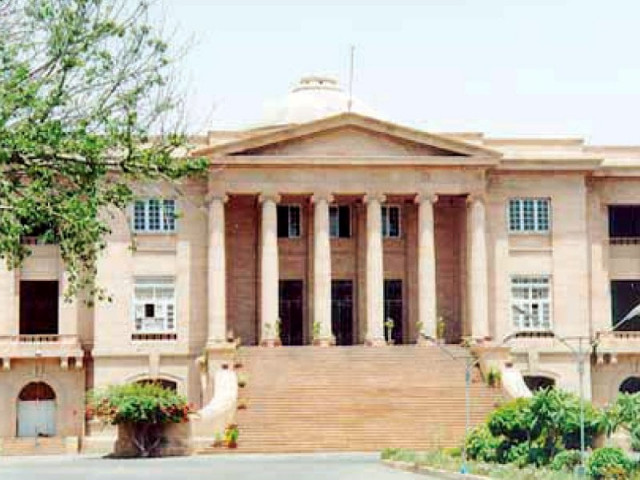PEMRA’s suspension of TV channels illegal: SHC
Directs wide circulation of SOPs in rape cases

The Sindh High Court ruled on Friday that the Pakistan Electronic Media Regularity (PEMRA) chairperson could not exercise discretionary powers to cancel licences of private TV channels without the enactment of rules to structure such discretion. Announcing the verdict on a petition filed by the Pakistan Broadcasters Association (PBC) challenging PEMRA chairperson’s powers to cancel licenses, a two-member bench comprising Justice Salahuddin Panhwar and Justice Adnanul Karim Memon, dubbed the enactment of discretionary powers under Section 13 of the PEMRA Ordinance illegal.
“We declare that the powers of PEMRA under Section 30 PEMRA could not be delegated to Chairman or any other official of PEMRA by dint of section 13 PEMRA Ordinance for suspension of broadcast media licences without framing of rules,” read the written verdict.
It annulled all actions taken by the chairperson in pursuance of such powers and restored suspended licenses.
Ensure SOP implementation in rape cases
Announcing the verdict on a constitutional petition seeking the high court’s intervention over non-compliance of the Supreme Court’s order regarding sexual assault and rape cases, the same bench directed the relevant authorities to widely circulate standard operating procedures (SOPs) and legal discourse for such cases among courts, law enforcing personnel and medical staff.
In its written order, the court directed that the standard procedure should be translated in Sindhi and Urdu and distributed to all registrars and judges of administrative and anti-terrorism courts as well as to offices of the SHC, Sindh prosecutor-general, Sindh advocate-general, to all police stations and offices of SSPs and DIGs and other relevant departments.
“Police stations have failed to engage civil society organisations on the receipt of a rape complaint…preservation of and testing of DNA evidence is sporadic, un-standardised and delayed, the facilities available for DNA testing continues to be severely limited and dysfunctional,” the petitioners had contended.
The court directed the relevant authorities to ensure swift and transparent trials in rape cases and detailed guidelines for doing the same. It stated that for funds to implement the judgement, the home secretary is directed to immediately take up the matter with presiding officers of the ATCs.
According to the guidelines, all sexaul assault cases are to be directly supervised by relevant SSP who will be immediately intimated by the duty officer when such a complaint is received..
The SSP shall ensure that forensic teams are fully equipped to collect the evidence, the bench ruled, adding that the teams tasked with collecting the samples and evidence should be notified for each district. Moreover, the SSP was directed to monitor DNA testing and ensure police surgeons complete the process in a timely manner.
Besides, district health officers were directed to ensure that a female medico-legal officer is available around the clock at each taluka level hospital. All labs are to carry out testing in a timely manner and the cost of such tests should be cleared immediately by the relevant authorities.
The verdict stressed that duty officers at police stations ensure FIRs in such cases are lodged immediately after the complaint is received and the complainant should be made aware of the necessary process regarding medico-legal examinations. The medico-legal officer shall ensure their presence at the relevant hospital on time so that the victim does not have to wait, the SOPs read. The ruling added that the clothes worn by the rape survivor or the accused at the time of offence must be taken, preserved and sealed for testing. It added that the probe, including inspection of the crime scene, should be launched immediately.
Published in The Express Tribune, August 14th, 2021.



















COMMENTS
Comments are moderated and generally will be posted if they are on-topic and not abusive.
For more information, please see our Comments FAQ